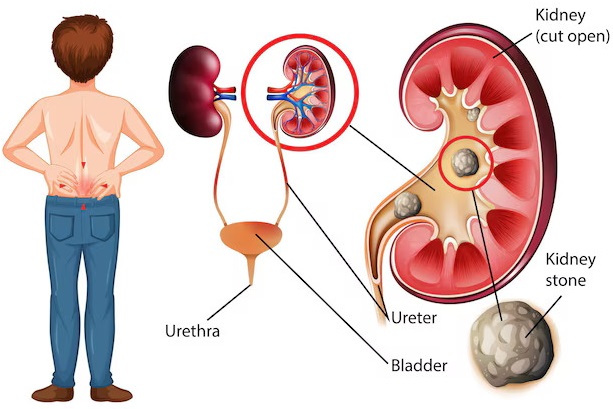
The Basics of Urology: What Happens During Stone Surgery?
Kidney stones are a common and painful condition that affect many people. If you’ve been diagnosed with kidney stones and your doctor recommends surgery, you may wonder what happens during the procedure. Urology is the medical field that focuses on the urinary system, including the kidneys, bladder, and ureters, and urologists are the specialists who treat kidney stones. In this blog, we’ll explain the basics of urology and what happens during stone surgery.
Why Do Kidney Stones Require Surgery?
Kidney stones form when minerals and salts in the urine crystallize into hard stones. While small stones can often pass naturally, larger stones or those causing symptoms like severe pain, infection, or urine blockage may require surgical treatment. Surgery is also considered if stones are recurring or if other treatments haven’t worked.
Types of Stone Surgery
Urologists use different methods to remove kidney stones, depending on their size and location. Here are the most common types of surgery:
- 1. Shock Wave Lithotripsy (SWL)
This non-invasive procedure uses sound waves to break the stone into smaller pieces that can pass through urine. It’s usually for smaller stones in the kidney.
What to expect: This procedure is done under sedation. You may pass fragments of the stone afterward. - 2. Ureteroscopy
In ureteroscopy, a small, flexible tube is inserted through the urethra, bladder, and into the ureter (the tube connecting the kidney to the bladder). The stone can be removed or broken into smaller pieces with a laser.
What to expect: It’s done under general anesthesia, and you may need a temporary stent to help with urine flow during recovery. - 3. Percutaneous Nephrolithotomy (PCNL)
This procedure is used for larger stones. A small incision is made in the back, and a tube is inserted to remove the stone directly from the kidney.
What to expect: PCNL requires general anesthesia and a longer recovery time. - 4. Open Surgery
In rare cases, a larger incision may be necessary to remove very large or complex stones.
What to expect: Open surgery requires more recovery time and is typically done only when other treatments fail.
What Happens During the Procedure?
Before surgery, your urologist will perform imaging tests like X-rays or CT scans to locate the stone. The procedure itself is usually done under anesthesia, so you’ll be comfortable and pain-free. After the surgery, you may experience some discomfort or blood in the urine as you pass stone fragments. Your doctor will provide follow-up care instructions to ensure a smooth recovery.
Conclusion
Stone surgery is an effective way to treat kidney stones, especially when other methods fail. If you’re dealing with kidney stones, understanding what happens during surgery can help you feel more prepared. Always consult your urologist for advice on the best treatment for your situation.



